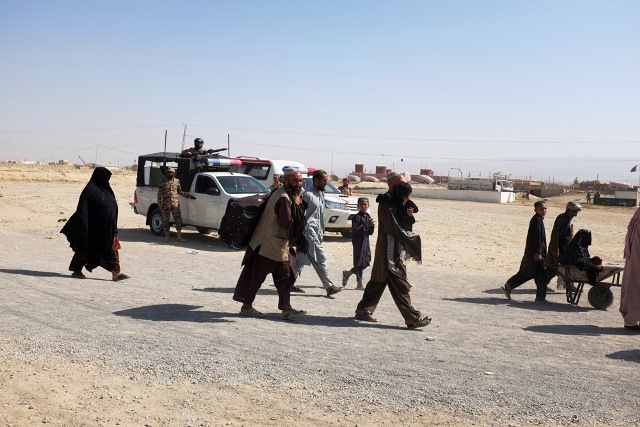Thousands of Pashtun tribal people who for decades ignored the invisible line that bisects their dusty villages and demarcates the Afghanistan-Pakistan frontier are bracing for a Berlin Wall-style divide of their neighbourhoods. Pakistan, worried by Islamist attacks, is building a fence to prevent militants criss-crossing the porous 2,500km (1,500 mile) frontier along the disputed colonial-era Durand line drawn up by the British in 1893.
The fence, which Kabul opposes, will run down the middle of so-called "divided villages" where few people have passports and Pashtun tribal loyalty often trumps allegiance to the state.
Thousands of Pashtun tribal people who for decades ignored the invisible line that bisects their dusty villages and demarcates the Afghanistan-Pakistan frontier are bracing for a Berlin Wall-style divide of their neighbourhoods. Pakistan, worried by Islamist attacks, is building a fence to prevent militants criss-crossing the porous 2,500km (1,500 mile) frontier along the disputed colonial-era Durand line drawn up by the British in 1893.
The fence, which Kabul opposes, will run down the middle of so-called "divided villages" where few people have passports and Pashtun tribal loyalty often trumps allegiance to the state.














7.jpeg)
7.jpeg)
73.jpeg)
349.jpeg)
220.jpeg)





